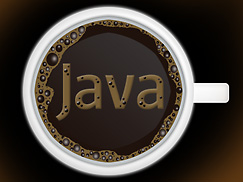
Oracle-IBM pact cuts Android off at the knees
Larry Ellison's latest move could seriously undermine Android, no matter how Oracle's courtroom battles with Google turn out
Here's the story in a nutshell: Android apps are written in a restricted dialect of the Java language, which meant the platform had a vast and skilled developer community from the moment it was released. The components of Android that allow it to run Java code are based on the Harmony project, an open source implementation of Java created under the aegis of the Apache Software Foundation. The vast majority of the code in Harmony was actually written by IBM employees, because Big Blue decided Harmony would be where it would direct its Java development efforts.
But that's no longer the case; the core of the IBM-Oracle deal is that those employees will now switch their attention to OpenJDK, Oracle's in-house open source Java implementation. The move completely sucks the wind out of Harmony's sails, with Tim Ellison, one of Harmony's senior developers, essentially conceding the project will probably fold in short order.
Phi Beta Iota: Fascinating at multiple levels. From where we sit, Google is diving, Oracle-IBM are spreading out, and Microsoft is standing pat without a handheld to desktop to cloud concept of operations for what one IBM genius called Service Science. Apple has trademarked “There's an app for that.” Stupid but a perfect set-up for Microsoft, or somebody to figure out the only proper answer is “We don't sell apps, we provide answers on demand.” Microsoft has can only be called “unrealized potential.” Amazon who?






